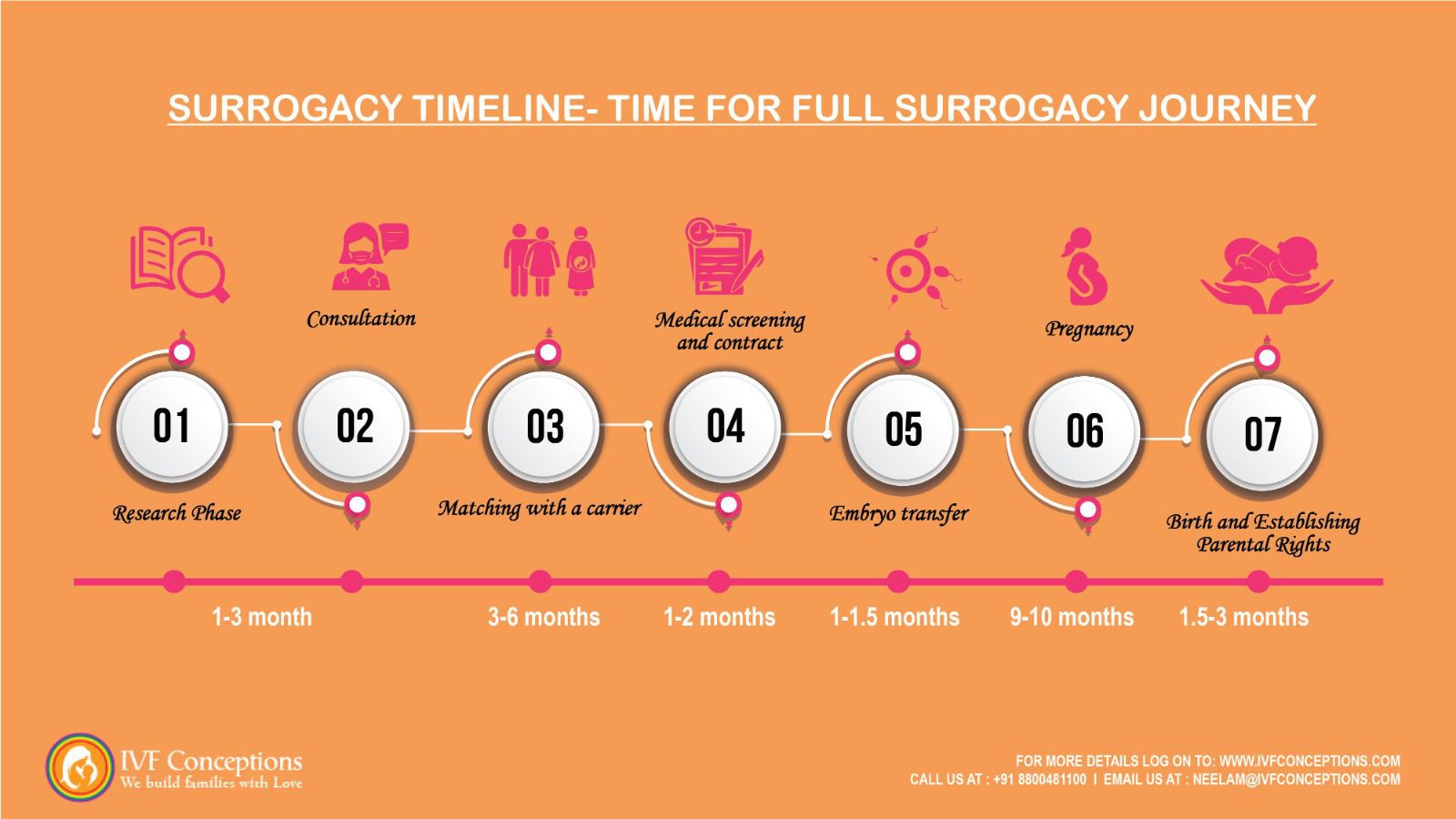What is Frozen Embryo Transfer (FET) in Surrogacy- Surrogacy with Frozen Embryos in 2025

Surrogacy has been a controversial and complex topic for many years, with various ethical and legal debates surrounding it. However, with advancements in technology and medical science, a new form of surrogacy has emerged – surrogacy with frozen embryos.
This method involves using embryos that have been created through in vitro fertilization (IVF) and freezing them for future use in a surrogacy arrangement. This process not only offers a solution for couples struggling with infertility but also presents a unique opportunity for individuals and couples to have a biological child through a surrogate.
Frozen embryo transfer (FET) is a process in which previously frozen embryos are thawed and implanted into a surrogate’s uterus. This method allows intended parents to use embryos from past IVF cycles, donor embryos, or embryos stored for medical or genetic reasons.
Why Do Intended Parents Choose Frozen Embryo Transfer?
✔ Higher success rates due to embryo screening
✔ More flexibility in timing and planning the transfer
✔ Cost-effective compared to creating new embryos
✔ Reduced medication load on the egg donor or intended mother
Frozen vs. Fresh Embryo Transfers: Which is Better?
| Aspect | Frozen Embryo Transfer (FET) | Fresh Embryo Transfer |
|---|---|---|
| Success Rates | High (due to better embryo selection) | Slightly lower than FET |
| Flexibility | Can be done anytime | Must align with egg retrieval |
| Cost | Generally lower if embryos are already created | Higher due to synchronization requirements |
| Genetic Testing | PGT-A (Preimplantation Genetic Testing) can be done | Limited testing window |
| Risk of OHSS | Lower (no ovarian stimulation required) | Higher for egg donors or intended mothers |
Begin your surrogacy journey with IVF Conceptions today!
Mobile: +91-8800481100 ( WhatsApp, Line, Viber)
Email: neelam@ivfconceptions.com
Web: www.completesurrogacy.com
Additional guide for Frozen Embryos Surrogacy:
All about Egg Freezing: Types, Cost, Process, Risk, And Who Needs It.
What is Egg Freezing: A Comprehensive Guide
Number of Embryos to Transfer in Surrogacy

Step-by-Step Process of Frozen Embryo Transfer in Surrogacy
1️⃣ Embryo Selection & Thawing
- The clinic selects high-quality frozen embryos for transfer.
- The embryos are thawed at a specialized IVF laboratory.
2️⃣ Preparing the Surrogate’s Uterus
- The surrogate undergoes hormonal preparation to synchronize her uterine lining for implantation.
- Medications include estrogen and progesterone to mimic a natural cycle.
3️⃣ Embryo Transfer Procedure
- A fertility specialist transfers the thawed embryo into the surrogate’s uterus using a catheter.
- The procedure is painless and quick (10-15 minutes).
4️⃣ Post-Transfer & Pregnancy Testing
- The surrogate takes progesterone support for implantation.
- Beta-hCG blood tests confirm pregnancy after 10-14 days.
Success Rates of Surrogacy with Frozen Embryos
| Age of Egg Provider | Success Rate per Transfer (%) |
|---|---|
| Under 35 years | 60-70% |
| 35-40 years | 50-60% |
| Over 40 years | 30-40% |
💡 Key Factors That Influence Success:
✔ Embryo quality – Higher-grade embryos increase success rates.
✔ Surrogate’s health – A healthy uterine lining is crucial.
✔ Clinic expertise – Experience in FET procedures affects outcomes.
 Benefits of Frozen Embryos Surrogacy
Benefits of Frozen Embryos Surrogacy
When considering surrogacy as an option for starting or expanding a family, the use of frozen embryos can offer several benefits worth considering.
Firstly, the cost of surrogacy with frozen embryos may be more affordable compared to fresh embryo transfer.
This is because the initial IVF cycle to create the embryos has already been completed and the embryos have been cryopreserved for future use.
Additionally, using frozen embryos allows for better timing and coordination between the intended parents and the surrogate, as the embryos can be thawed and transferred at a time that is most convenient for all parties involved.
Furthermore, frozen embryos have been shown to have a high survival rate during the thawing process, ensuring a greater chance of successful implantation and pregnancy.
Considering these advantages, opting for surrogacy with frozen embryos may provide a cost-effective and efficient path toward achieving the dream of parenthood.
Benefits of Using Frozen Embryos in Surrogacy
✅ Less Stress & More Planning Time – Parents can schedule transfers flexibly.
✅ Lower Costs for Additional Cycles – No need for repeated IVF stimulation.
✅ Genetic Screening Available – Embryos can undergo PGT-A testing to improve implantation chances.
Are There Risks with Frozen Embryo Transfer?
🔸 Slightly lower implantation rate than fresh embryos.
🔸 Some embryos may not survive thawing (~5-10% loss).
🔸 Hormonal medication required for surrogate preparation.

Cost of Surrogacy with Frozen Embryos
The cost of frozen embryo surrogacy is less than a fresh IVF surrogacy plan as no IVF is needed. But you need to consider the cryo-shipment cost, which is more than we hope.
| Procedure | Estimated Cost (USD) |
|---|---|
| Frozen Embryo Storage (Annual) | $500 – $1,500 |
| Embryo Thawing & Preparation | $2,000 – $4,000 |
| Frozen Embryo Transfer (FET) | $3,000 – $5,000 |
| Surrogacy Program (Total) | $50,000 – $150,000 |
Legal Aspects of Using Frozen Embryos in Surrogacy
- Ensure legal parentage is established before the embryo transfer.
- In some countries, embryo donation requires additional agreements.
- Work with a fertility lawyer to navigate parental rights and contracts.
Why should you Consider Frozen Embryos for your Surrogacy for a Higher Success Rate?
When considering options for surrogacy, it is important to explore the benefits of using frozen embryos. Frozen embryos offer several advantages for intended parents pursuing surrogacy.
Firstly, frozen embryos provide a greater level of control and flexibility in planning for a surrogacy journey. With frozen embryos, intended parents have the opportunity to carefully select and prepare embryos before transfer, ensuring optimal conditions for successful implantation.
Additionally, using frozen embryos can reduce the time and cost associated with the creation of embryos during the surrogacy process.
By utilizing frozen embryos, intended parents can bypass the need for fresh embryo creation, streamlining the overall timeline and potentially reducing expenses.
Moreover, frozen embryos have proven to have high success rates in terms of viability and implantation, increasing the chances of a successful pregnancy for the surrogate and the intended parents.
Overall, the utilization of frozen embryos in the surrogacy process offers a practical and advantageous option for those seeking to grow their families through surrogacy.
 Choosing the right surrogacy agency
Choosing the right surrogacy agency
In the realm of surrogacy with frozen embryos, selecting the right surrogacy agency is a critical decision that can greatly impact the outcome of your journey.
It is essential to thoroughly research and evaluate potential agencies to ensure they align with your specific needs and expectations.
Consider factors such as the agency’s experience and expertise in handling surrogacy arrangements involving frozen embryos.
Look for agencies that have a proven track record of success and a strong reputation within the surrogacy community.
Additionally, assess the level of support and guidance the agency provides to both intended parents and surrogates throughout the entire process.
A reputable agency should offer comprehensive services, including thorough screening and matching processes, legal guidance, and ongoing emotional support.
Remember to also consider the cost of surrogacy with frozen embryos and whether the agency’s fees align with your budgetary constraints.
Ultimately, choosing the right surrogacy agency is crucial for ensuring a smooth and successful surrogacy journey with frozen embryos.
As you might need lots of coordination and planning for a shipment from your fertility clinic to recipient clinics, choose who has experience working with cryo-shipment agencies.
 Conclusion
Conclusion
In conclusion, surrogacy with frozen embryos is a viable option for individuals or couples who are unable to carry a pregnancy themselves.
Final Thoughts: Is Surrogacy with Frozen Embryos Right for You?
For intended parents with stored embryos, FET in surrogacy provides an efficient, cost-effective, and successful way to have a child.
💡 Thinking about surrogacy with frozen embryos? Contact a surrogacy consultant to explore your options! 🚀
If you’d like to learn more about IVF, Egg Donation, or surrogacy services globally, check out the rest of our website at IVF Conceptions. We offer legally secure and affordable surrogacy consulting services for FREE.
Begin your surrogacy journey with IVF Conceptions today!
Mobile: +91-8800481100 ( WhatsApp, Line, Viber)
Email: neelam@ivfconceptions.com
[/vc_column_text]
FAQ
What is the process of surrogacy with frozen embryos and how does it differ from traditional surrogacy?
The process of surrogacy with frozen embryos involves using embryos that have been previously created through in vitro fertilization (IVF) and frozen for future use.
These embryos are then transferred into a surrogate’s uterus to achieve a successful pregnancy. This process differs from traditional surrogacy, where the surrogate mother is also the biological mother of the child, as in the case of using frozen embryos, the intended parents are the biological parents of the child.
Frozen embryo surrogacy allows couples to have a child that is genetically related to them while utilizing a surrogate to carry the pregnancy.
What are the legal and ethical considerations surrounding surrogacy with frozen embryos?
The legal and ethical considerations surrounding surrogacy with frozen embryos involve issues such as consent, the rights of the biological parents, the rights of the surrogate mother, and the well-being of the child.
From a legal standpoint, there may be requirements for written agreements and legal contracts to ensure the intentions and expectations of all parties involved are clear and protected.
Make sure you fulfill all the logistics and consent forms needed for cryo-shipment of your embryos.
How are frozen embryos created and stored for surrogacy purposes?
Frozen embryos for surrogacy purposes are created through in vitro fertilization (IVF). During IVF, eggs are retrieved from the intended mother or an egg donor and fertilized with sperm from the intended father or a sperm donor.
The resulting embryos are then cryopreserved using a process called vitrification.
Vitrification involves rapidly cooling the embryos to very low temperatures, which prevents the formation of ice crystals and ensures their preservation.
The frozen embryos are stored in specialized storage tanks using liquid nitrogen, which maintains a stable temperature of -196 degrees Celsius. When the intended parents are ready to proceed with surrogacy, the frozen embryos can be thawed and transferred to the surrogate’s uterus for implantation.
What are the success rates of surrogacy with frozen embryos compared to other methods?
The success rates of surrogacy with frozen embryos are generally comparable to other methods of surrogacy. Studies have shown that the success rates of frozen embryo transfers (FET) in surrogacy can range from 30% to 50% per transfer cycle. These success rates are similar to fresh embryo transfers and depend on factors like the quality of the embryos, the age and health of the surrogate, and any underlying fertility issues. While there may be slight variations, overall, surrogacy with frozen embryos has proven to be a highly successful method for achieving pregnancy and building families.

 Benefits of Frozen Embryos Surrogacy
Benefits of Frozen Embryos Surrogacy Choosing the right surrogacy agency
Choosing the right surrogacy agency Conclusion
Conclusion